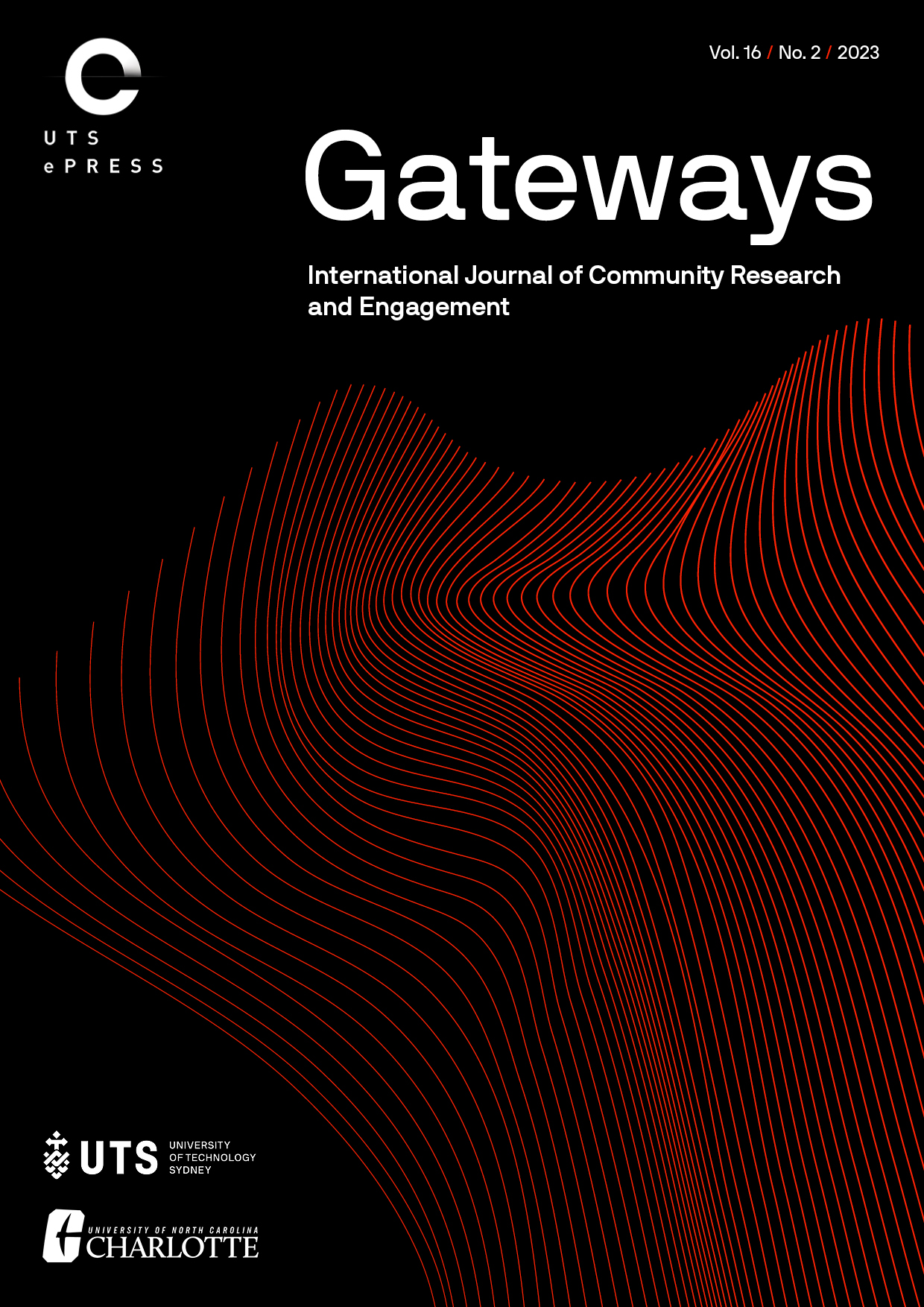The essential role of ABCD in developing two community engagement frameworks for supporting Latinx students
Main Article Content
Abstract
Asset Based Community Development (ABCD) is an important framework to understand and develop community-engagement experiences for Latinx students, especially at Hispanic Serving Institutions that play an important role in educating Latinx students. This article presents the conceptual findings of a research project that looked at the community-engagement experiences of Latinx students at an HSI. Drawing on in-depth interviews and critical frameworks for engagement, two models were developed: Prism of Liberatory Engagement and Asset Based Critical Engagement. These frameworks are presented as ways to (1) understand and differentiate the service learning experiences of Latinx students and (2) provide a framework for faculty and Community Engagement Professionals (CEPs) to situate their courses and community relationships, and work from an asset-based philosophy of engagement. The Prism of Liberatory Engagement gives explicit attention to the themes (awareness, agency and action; positive interaction with faculty; engaging sameness, and engagement for uplift) and the significant factors (personal/familial trauma, constraints and previous experience with service) that shape the community-engagement experiences of Latinx students. The Asset Based Critical Engagement model presented in this article provides a theoretical asset-based framework for critical pedagogy for service learning and community engagement that can be vital for institutions, in and outside of the United States, which are serving an increasingly diverse student population.
Article Details
Issue
Section
Authors who submit articles to this journal from 31st March 2014 for publication, agree to the following terms:
a) Authors retain copyright and grant the journal right of first publication with the work simultaneously licensed under a Creative Commons Attribution License that allows others to share and adapt the work with an acknowledgement of the work's authorship and initial publication in this journal.
b) Authors are able to enter into separate, additional contractual arrangements for the non-exclusive distribution of the journal's published version of the work (e.g., post it to an institutional repository or publish it in a book), with an acknowledgement of its initial publication in this journal.
c) Authors are permitted and encouraged to post their work online (e.g., in institutional repositories or on their website) prior to and during the submission process, as it can lead to productive exchanges, as well as earlier and greater citation of published work (See The Open Access Citation Advantage Service). Where authors include such a work in an institutional repository or on their website (ie. a copy of a work which has been published in a UTS ePRESS journal, or a pre-print or post-print version of that work), we request that they include a statement that acknowledges the UTS ePRESS publication including the name of the journal, the volume number and a web-link to the journal item.
d) Authors should be aware that the Creative Commons Attribution (CC-BY) License permits readers to share (copy and redistribute the work in any medium or format) and adapt (remix, transform, and build upon the work) for any purpose, even commercially, provided they also give appropriate credit to the work, provide a link to the license, and indicate if changes were made. They may do these things in any reasonable manner, but not in any way that suggests you or your publisher endorses their use.
For Volume 6 (2013) and before, the following copyright applied:
Articles published by UTSePress are protected by copyright which is retained by the authors who assert their moral rights. Authors control translation and reproduction rights to their works published by UTSePress. UTSePress publications are copyright and all rights are reserved worldwide. Downloads of specific portions of them are permitted for personal use only, not for commercial use or resale. Permissions to reprint or use any materials should be directed to UTSePress.
